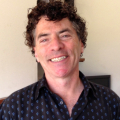Recovered Memories
A long time interest has been the validity of recovered memories of sexual abuse. Although this has been a highly polarized topic with some researchers asserting that recovered memories are largely accurate and others insisting that they are generally false, our research suggest that both possibilities occur with some regularity.
Can discovered memories be the product of suggestion?
Our research on memory suggestibility is consistent suggest that great caution is required for interpreting memories discovered in the context of such practices (Schooler, 1994; Schooler, Bendiksen, & Ambadar, 1997; Schooler & Hyman, 1997; Schooler, 2000; Shobe and Schooler, 2002; Sivers, Schooler, & Freyd, 2001). We have conducted several studies examining the potential impact of two factors that are likely to be present in therapy contexts: plausibility- increasing the perceptions that an experience is plausible and schematicity- providing additional details about a possible event. Our studies have found that while providing individuals with base rate information that suggests an experience is common is a particularly effective technique for increasing individuals’ belief that the event happened to them (Hart & Schooler, 2006 ), providing additional schematic details can under some situations also be effective (Pezdek, Blandon-Gitlin, Lam, Ellis, & Schooler, 2007).
Can discovered memories correspond to actual abuse?
Although deeply cognizant of the risk of fabricated memories of abuse, I also believe that we as a field must be cautious not to prematurely dismiss the possibility that discovered memories of abuse may, at least on occasion, be authentic. Towards this end, my collaborators and I have developed a case study approach for investigating situations in which individuals believe they have discovered long forgotten memories of abuse. This approach is distinguished in two ways: first, we seek independent corroborative evidence for the various claims that are made, and second we consider each case in light of known cognitive mechanisms. Using this approach we (Schooler, Ambadar, & Bendiksen, 1997, Schooler, Bendiksen, & Ambadar, 1997; Schooler, 2000; Schooler, 2001, Shobe & Schooler, 2002) have gathered corroborative evidence for a number of cases suggesting that memory discovery experiences can, at least sometimes, correspond to actual incidents of sexual abuse. At the same time however, we have also found evidence that memory distortion processes may play an important role in memory discovery experiences. For example, in several cases, individuals believed that they had forgotten about the memories at a time in which they had, in fact, discussed them with other people. It appears that in the context of an emotional recollective experience, individuals may underestimate their prior knowledge about an event. This hindsight bias, termed the “forgot-it-all-along” effect, may play an important role in some discovered memories of actual abuse. More generally, it illustrates how discoveries of both fabricated and authentic memories can involve memory distortion processes.
Selected Publications
- Influences of the present on the past: The impact of interpretation on memory for abuse
- A cognitive corroborative case study approach for investigating discovered memories of sexual abuse
- Discovered memories and the" delayed discovery doctrine": A cognitive case based analysis
- Taking the middle line: Can we accommodate both fabricated and recovered memories of sexual abuse?
- A multiplicity of memory
- Cognition, Teams, and Team Cognition: Memory Actions and Memory Failures in Distributed Team Environments.
- Discovering Fact and Fiction: Case-Based Analyses of Authentic and Fabricated Discovered Memories of Abuse
- Discovering memories in the light of meta-awareness.
- Memory for emotional events
- At a loss from words: Verbal overshadowing of perceptual memories


